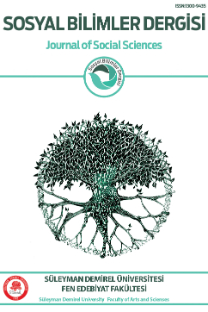Hititlerin Anadolu'da Kurdukları Ekonomik ve Sosyal Sistem
Hitit kralları ekonomik ve sosyal bir sistem yaratırken bütün düzenlemeleri merkezi bir devletin gereklerini yerine getirecek şekilde yapmışlardır. Tanrılara çok büyük önem atfedilmiş, yerel tanrıların kültleri koruma altına alınmış ve bazı tapınak şehirlerine özel ayrıcalıklar tanınmıştır. Askeri ya da bürokratik bütün idare merkezleri doğrudan Hitit başkenti Hattuša’ya bağlı idarecilerin kontrolüne verilmiş ve her zaman merkez tarafından denetlenmiştir. Toprağa bağlı Hitit ekonomisinde, işletmeden elde edilen kârlar Hitit krallarının askeri politikalarına kaynak oluşturacak şekilde organize edilmiştir. Toprağı işletme hakkı verilen şahıslar, elde ettikleri kârla atlı arabaların masraflarını karşılamakta, asker beslemekte ve toprağa bağlı halk, kamu işlerinde çalışarak devletin dayattığı angarya yükümlülüklerini yerine getirmekteydi. Hitit toplumunda sosyal sınıflar da ekonomik sistemin bir yansıması olarak çıkar karşımıza. Sosyal sistemi temelde hürler ve köleler olmak üzere iki tabaka halinde düşünmek mümkündür. Kral ve ailesinin içinde yer aldığı asillerin dışında hür halkın neredeyse tamamını toprağa bağlı köylüler oluşturuyordu. Köle sınıfı için yapılabilecek en doğru tanımlama ise alınıp satılabilir insanlar olduklarıdır. Hitit toplumunda ailenin görünümü, yasalardan anlaşıldığı üzere tam anlamıyla ataerkil bir yapıdaydı. Babanın kendi ailesi üzerinde sınırsız yetkisi vardı. Bununla birlikte kadınların hakları da tamamen yok sayılmamıştır.
The Social and Economic System Established by Hitites in Anatolia
While creating an economic and social system, the Hitite kings performed all of their actions to fit the needs of the central authority in the state. Great importance is attributed to the deities, the cults of the local deities were taken under protection and privileges were given to some temple cities. All the headquarters of state administration were under the control of the governers who were directly connected to the capital city of Hitites, Hattuša, and those centers were continiously inspected by the central authority. In the Hitite economy which is based on agriculture, the obtained profit were allocated in a manner to provide a source to the military policies of the Hitite kings. The people who were given the right to cultivate the land were in return responsible for maintaining the horse charts, providing the living expenses of soldiers; and the people working on the land were fullfilling their responsibilities imposed by the state by working in a corvee. The social strata in the Hitite community is seen as a reflection of the economic system. We can think of the social system as composed of two strata, called the frees and the slaves. Apart from the highborn class which consists the king and his family, almost all of the society was composed of villagers. The best definition for the slaves can be that they are the people who can be bought and sold. The structure of the family in Hitites, as seen in the laws is exactly patriarchal. The father had unlimited rights on his own family. However, the rights of the women were not completely ignored.
- ISSN: 1300-9435
- Yayın Aralığı: Yılda 3 Sayı
- Başlangıç: 1995
- Yayıncı: Süleyman Demirel Üniversitesi, Fen-Edebiyat Fakültesi
Sayıdaki Diğer Makaleler
1651 Yılında Kayseri Kalesinin Kuşatılamsı ve Kürd Mehmet Ağa
Avrupa Birliği Bilinç Düzeyinin Ölçülmesi: Isparta İli Örneği
TİMUÇİN KODAMAN, Selim KANAT, Esme SARAÇ, MUSTAFA İLBOĞA, HAMZA BAHADIR ESER
Hititlerin Anadolu'da Kurdukları Ekonomik ve Sosyal Sistem
Bektaşi İkonografisi Üzerine Bir Deneme: Hacı Bektaş Veli Müzesi'ndeki Figürlü Keşkül-ü Fukaralar
XIX. Yüzyılın İlk Yarısında Burdur ve Kazalarında Toplum ve Devlet Düzeni
Atatürk Döneminde Bodrum'un Nüfus Yapısı (1923-1938)
Siyasi Görüşlerin Tüketici Tutumlarına Etkisi
Ahmet Hüsrev EROĞLU, Sumru BAYRAKTAR
The Importance of Cultural Knowledge in Translation: A Partial Replication of Olk (2003)
İlköğretim Çağındaki Çocukların Sosyalleşmesinde Televizyonun Etkisi
